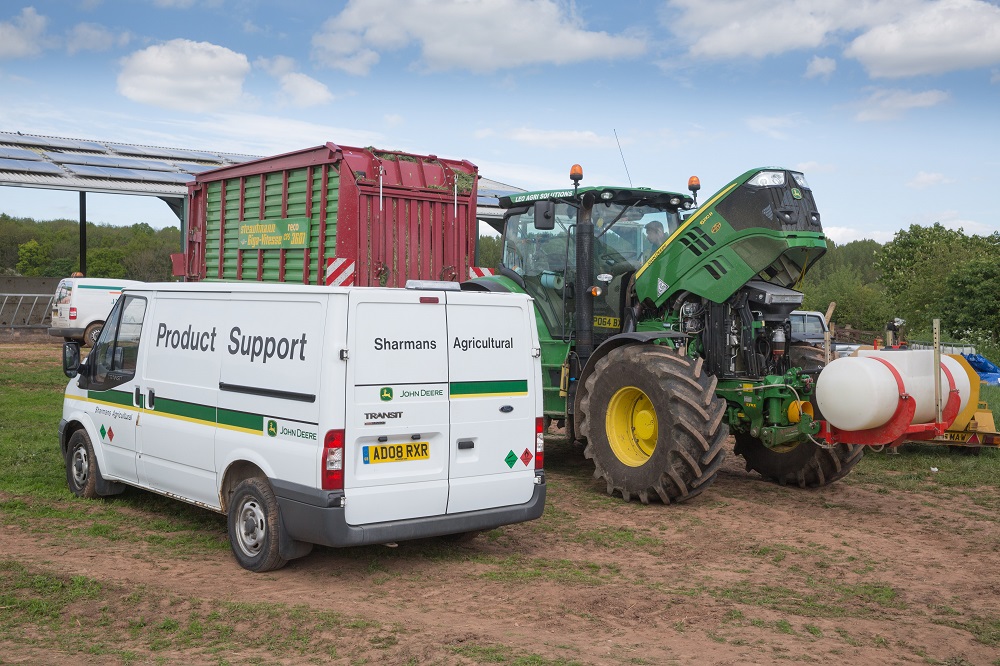
I’ve recently been reading about American farmers who have hacked into their own tractors. They’ve even gone so far as to download firmware hacks from the Ukraine to break into the machine’s management system.
It’s probably something that’s understandable – few things can be more infuriating, particularly when you’re busy, when for some reason, known only to the infernal circuit boards, the tractor appears to be dead or has thrown up an error code that bears no relationship whatsoever to the problem or is a dealer-only code.
It’s also hard to escape the fact that just about every machine in the developed world, even the simplest coffee maker, comes with some kind of electronic brain. But even with that coffee maker, as soon as you unscrew the cover and start to tamper with its gubbins, there goes your warranty. Simply plug in the wrong computer to diagnose a fault on your tractor and you could be in the same boat.
This brings up the question as to who owns the copyright to any software that’s used within a tractor, or any other implement for that matter. I’m pretty certain it’s the manufacturer and all any owner has is a licence to use it, which is probably for the best when the machine is still under warranty.
Of course, there are diagnostic programmes available under licence out there and very good they are too – they can run tests and help to work out what a problem is. They certainly do have their place, particularly with agricultural engineers, but they’re pretty expensive, usually need to be updated annually and as a rule cannot upload new software.
However most main-line dealers check for any software updates and upload them when doing a service, or as part of a warranty. So new kit with extended warranties of up to 6000 hours or up to five years and a servicing agreement can be a fairly attractive proposition, particularly if the dealer or manufacturer is prepared to offer a good deal on finance.
But as the farmers in America found, any deal for a new tractor is only as good as the dealer and manufacturer follow-up. If you’re breaking into the tractor’s electronic control unit using a dodgy programme downloaded from a Russian hacker because you’ve been waiting for two weeks for the service engineer to fix a fault then you’re probably using the wrong dealer.
So what happens when the tractor is a few years old and starting its second or third life, or if someone decides to remap or chip it. Some models will take remapping, usually where output is purely due to the programming of the electronic control unit (ECU), or if the tractor is basically an underpowered version of another tractor but shares the same cooling pack, turbo and ancillary components. There are others however that will pretty quickly self-destruct if they are either remapped or chipped.
The fact is, in this ever increasingly technical world, once a tractor is out of warranty, in common with just about every car on the road today, it will still need to be plugged into a laptop to identify a problem.
So does this mean tractors will become more like cars and will need to be scrapped after just a few years? Will the export trade change dramatically as increased technology finds less favour in third-world markets? Farmers in Africa, India and other countries just want a tractor they can service themselves, without the electronic gadgetry and emissions regulation of European kit.
How will deals change for UK farmers? Keeping a tractor until the end of an extended warranty or for even longer may become a rarity, with mysterious electronic malfunctions adding to all the associated costs of breakdowns and wearing parts as machinery ages and wears through long term use. Perhaps two-year deals with agreed hours of use and a buy back value will become the norm for high value machinery purchases.
One thing’s for certain – ‘after sales service’ has become key when it comes to agricultural machinery sales, and it’s something that’s really been emphasised by the farmers I’ve interviewed in this month’s On Farm Opinion pieces. A machine’s capabilities and a keen price may seal a deal but it’s how the buyer is treated in the next few years of ownership that will see them retained as a loyal customer.




